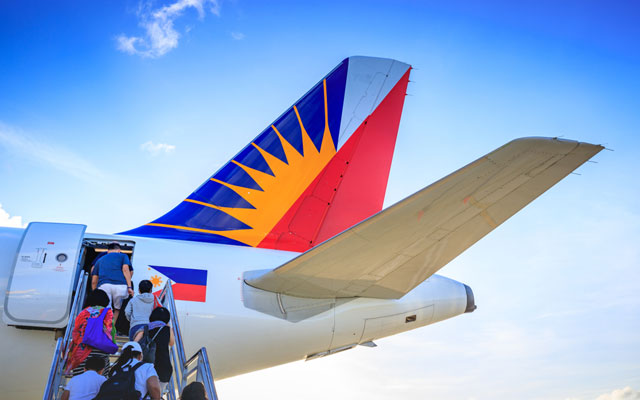Philippine outbound agents are bracing for worrying prospects, as the weakening peso currency, reinstatement of local airlines’ fuel surcharge, and high inflation rate combine to make travelling abroad more expensive.
The weakening of the Philippine currency to 54.3 pesos against the greenback at press time – eight per cent lower than at the start of the year and the weakest in 13 years – is expected to have “a massive effect” on travellers and travel agents, unless they have saved some dollars in the past, said Lax Junnel Mendoza, president of Le Voyageur International Travel.

“Buying dollars for pocket money will cost travellers more and credit card won’t be a good payment choice. Most travel agents don’t have dollar accounts and even if we charge passengers in dollars, we have to charge them higher because we have to pay our partners (abroad) in dollars,” Mendoza explained.
Also making travel costlier is the country’s six per cent inflation rate, one of the highest in Asia, and increased airfares. In mid-September, the Philippine Airlines and Cebu Pacific added fuel surcharge in airfares due to a hike in aviation fuel prices and exchange rate fluctuation.
Feliz Axalan, Tradewings Tours and Travel’s general manager, is also “worried” that the general elections in May next year may “push back” outbound travel, usually the case during elections.
Axalan said that the longhaul outbound market is the first to be affected as it requires more forward planning, unlike within Asia where budget fares abound.
However, for Mendoza, even outbound demand to Asia is affected by passengers’ “reduced buying power”, citing the example of a US$300/pax Hong Kong package which is the equivalent of 16,300 pesos compared to 13,000 pesos in January when the currency was stronger.
Philippine Travel Agencies Association’s (PTAA) president Marlene Jante expects the currency effects to become more apparent for new 2019 outbound bookings.
To cushion any currency impact, many agencies now require dollar payment, Jante shared, adding that Filipinos still travel despite the higher costs involved.
On the other hand, Mendoza’s strategy amid the currency flux is to chase the domestic tourism sector. “They don’t have to pay travel tax and they don’t have to buy dollars.”
While her inbound operations has profited from the weak peso, Axalan said the agency will have “to find ways to keep outbound rates the same” and “renegotiate with suppliers to give us the best rates”.
For example, Axalan has seen more leisure groups departing for Europe this year than previously by partnering with lesser-known airlines like Saudia and Kuwait Airways, enabling them to offer groups an affordable US$1,985 package for 10 days to five countries in Europe.




















